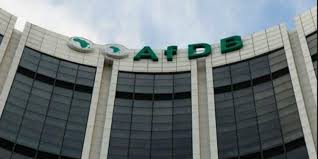The African Development Bank (AfDB) has committed a $1.2 million grant to fund a feasibility study on Battery Energy Storage Systems (BESS) in Nigeria, marking a significant step toward the country’s energy transition.
The announcement was made during the inaugural workshop for the BESS feasibility study, held on Wednesday in Abuja. The event was jointly organised by the Transmission Company of Nigeria (TCN), the AfDB, and the Sustainable Energy Fund for Africa.
Abdul Kamara, AfDB’s Director-General for Nigeria, said the grant falls under the bank’s Africa Energy Transition Catalyst Programme, designed to accelerate sustainable energy solutions across the continent. Represented by Chigoziri Egeruoh, Kamara emphasized that while Africa possesses nearly 60 percent of the world’s best solar resources, it currently accounts for just 2 percent of global energy storage capacity—a disparity that presents both a challenge and an opportunity.
Kamara highlighted examples from South Africa and Kenya, where large-scale battery storage is already reinforcing grid stability and supporting renewable energy deployment. “Now, Nigeria is poised to take a bold step in that same direction,” he said.
The feasibility study, to be implemented through TCN, will explore the technical and regulatory landscape required to integrate battery storage into Nigeria’s national grid. It will also assess investment opportunities, grid performance, and long-term ownership models to ensure sustainability.
Kamara noted that the initiative aligns with Nigeria’s national Energy Transition Plan, the Sustainable Energy for All (SE4ALL) action agenda, and the Renewable Energy Master Plan. He stressed that storage is no longer a luxury but a necessity for grid reliability, peak load management, and frequency regulation.
“Technology alone is not enough. We need regulatory reforms and an enabling investment environment to scale these innovations sustainably,” Kamara added.
He also reaffirmed AfDB’s broader support for Nigeria’s energy reforms, highlighting the bank’s $1 billion Economic Governance and Energy Transition Support Programme, of which $500 million has already been disbursed. In addition, a separate $1 million grant through the Africa Energy Sector Technical Assistance Programme (AESTAP) is helping to implement the new Electricity Act and build state-level electricity markets.
AfDB has also invested in major infrastructure projects including the $200 million Nigeria Electrification Project (NEP), which is expanding mini-grid and off-grid energy access, and the $250 million Nigeria Transmission Expansion Project (NTEP) aimed at reinforcing the national grid.
Nigeria is also a key focus of the bank’s $20 billion Desert to Power initiative, which seeks to generate 10,000 megawatts of solar energy across the Sahel and deliver electricity to 250 million people.
Speaking at the workshop, TCN Managing Director Sule Abdulaziz—represented by Olugbenga Ajiboye, Executive Director of Transmission Service Provider emphasized the technical challenges the grid currently faces, including frequency instability, peak load pressure, and voltage limitations. He said BESS offers a practical solution to these issues by providing frequency regulation, reserve capacity, and voltage support.
“The study is both timely and essential to strengthening grid performance and unlocking more efficient use of our transmission infrastructure,” he said.
Also in attendance, the Minister of Power, Adebayo Adelabu, described the feasibility study as not only a technical task but a strategic intervention to guide Nigeria’s energy future.
The initiative marks a critical move in Nigeria’s efforts to transition toward cleaner and more reliable power systems, with AfDB reinforcing its role as a key partner in the country’s sustainable energy journey.










